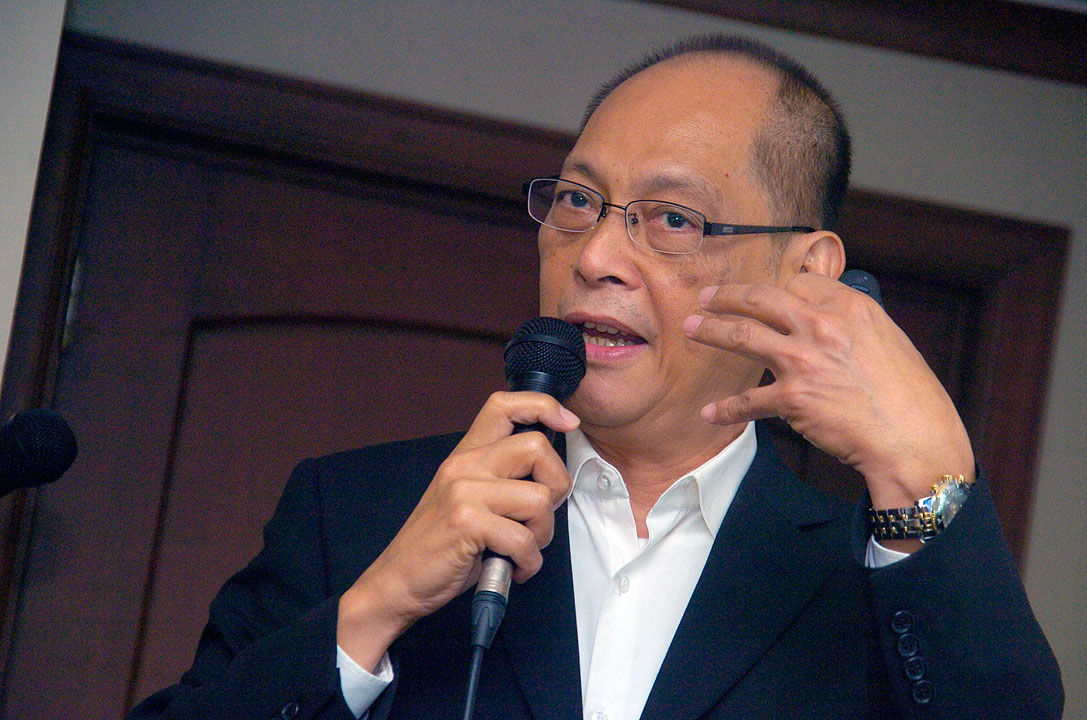PHL touts capital markets route to finance greening of economy

FINANCE SECRETARY Benjamin E. Diokno said that the government intends to make its economy greener in part using resources raised by its sustainable financing program.
Speaking to the Group of Twenty (G20) gathering as a guest of host country Indonesia, Mr. Diokno said that apart from climate bonds, it hopes to fund its efforts with new taxes and aid from the international community.
“In this regard, we have assembled a group of Filipino experts to engage climate-vulnerable communities and prepare them to execute localized action plans,” Mr. Diokno told G20 finance ministers and central bank governors Saturday.
The G20 accounts for 80% of global gross domestic product (GDP).
Philippine officials, including Mr. Diokno’s predecessor and President Ferdinand R. Marcos, Jr. himself, have taken the position that the Philippines bears a disproportionate burden from climate change, while the industrialized countries responsible for much of it have not, putting them on the hook at least morally for funding climate mitigation.
Mr. Diokno told the forum that the government is seeking to mobilize climate finance through the so-called Green Force, which is led by the Department of Finance (DoF) along with the Bangko Sentral ng Pilipinas (BSP).
“This interagency task force was established to synergize public and private investment in green projects and mainstream climate change through the financial sector,” Mr. Diokno said.
Under the Philippines’ Sustainable Finance Framework, the government “recently issued its first-ever sustainability global bonds worth $1 billion, and sustainability samurai bonds worth $600 million. Both transactions were met with strong demand despite volatility in the global markets,” Mr. Diokno told the G20.
The Philippines also debuted Environmental, Social, and Governance (ESG) Global Bonds in March, with 25-year Global Bonds offered at P1 billion.
Overall, “the Philippines successfully tapped the international capital markets with the country’s offering of $2.25-billion triple tranche 5-year, 10.5-year, and 25-year Global Bonds. The transaction was the first triple tranche USD offering from the Philippines,” a press release from the DoF said.
In April, the Philippines also issued its first Association of Southeast Asian Nations’ (ASEAN) Sustainability bond transaction in the Samurai bond market.
The Philippines successfully returned to the Samurai market with its 70.1-billion-yen ($600 million) offering of five-year, seven-year, 10-year, and 20-year sustainability bonds, the proceeds of which will support Environmental, Social, and Governance (ESG) projects, the DoF said.
At the G20 forum, Mr. Diokno reiterated his intention to tax activities which impact the environment.
“We are supporting the passage of a bill that would either regulate or tax the use of single-use plastics to cut pollution and adopt more sustainable practices. We are also considering the imposition of a carbon tax,” he said.
A P20 excise tax per kilogram of single-use plastics was part of the previous government’s fiscal consolidation plan, although it had been targeted for rollout in 2023.
Meanwhile, a tax on carbon emissions was also contemplated in the third package of the same fiscal consolidation plan.
“The Philippines is one of the countries at highest risk for climate-related disasters. We are thus determined to be a world leader in this fight against the crisis,” Mr. Diokno said.
PARTNERSHIP WITH ADB
Mr. Diokno also expressed the Philippines’ willingness to work with the international community on climate-related matters, citing an ongoing partnership with the Asian Development Bank (ADB).
“We will deal with the impact of climate change while bringing down energy costs through developing clean and renewable energy sources, such as hydro, geothermal, wind, and solar power. We will work together with the international community, such as our ongoing partnership with the ADB, to quicken our transition from coal to clean energy,” Mr. Diokno told the G20.
Aside from the Philippines, the ADB has also partnered with Indonesia in implementing the Energy Transition Mechanism (ETM) project, which was launched in October.
It aims to accelerate the transition of Southeast Asia from coal to green energy.
In addition, “the ADB just extended to the Philippines its first-ever climate change policy-based financing worth $250 million, making the country one of the pioneers in climate policy development financing,” Mr. Diokno said, referring to the Climate Change Action Program, Subprogram 1 (CCAP1).
“It will support the Philippines in implementing its national climate policies, including its Nationally Determined Contribution (NDC), which aims to peak greenhouse gas (GHG) emissions by 2030, and scale up climate adaptation, mitigation, and disaster resilience,” the ADB said.
“It focuses on sectors that are of national priority for climate action, targeting adaptation in highly vulnerable sectors (agriculture, natural resources, and environment), and mitigation in emissions-intensive sectors (energy and transport),” it added.
In April 2021, the government committed to reducing greenhouse gas emissions by 75% by 2030 when then President Rodrigo R. Duterte approved the Philippines’ first NDC. — Diego Gabriel C. Robles



